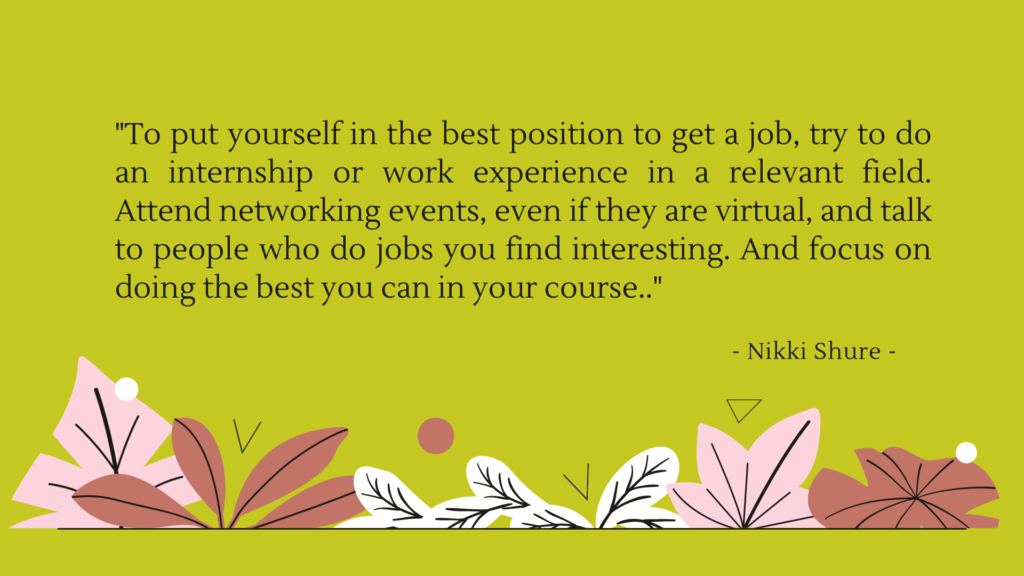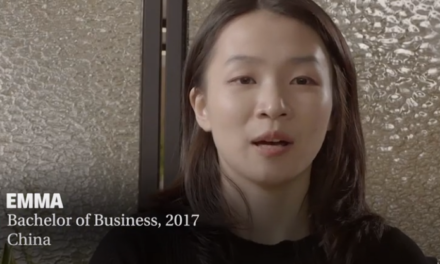Choosing your degree course doesn’t always have to be on the basis of employment prospects
Morgan McArthur’s story
For many students, working out what to study at university is guided by whether they want a route directly to a job, or to keep their options open. But sometimes it’s not easy to decide between the two.
This was Morgan McArthur’s experience. She’s now a 21-year-old language student at the University of Sheffield – but she nearly became a dentist. Bowing to pressure from her science-focused sixth-form college and anxious to assure herself a graduate job, she originally applied for a mix of dentistry and biosciences courses. When her results fell slightly short of her offer, the sense of relief surprised her: “I realized I really didn’t like biology.”
Amid the results day chaos, McArthur found herself thinking about how much she had enjoyed French – her only non-science A-level. “It was an escape for me, and to think you could do it at university, I just thought that was wonderful.” She secured a place on French and Linguistics at Sheffield through clearing, then swapped to French, Russian, and Spanish after arriving. “I’ve really appreciated going into a degree that’s more open because 16 is too young to choose what you want to do with your life. I’m in such a different place now.”
McArthur’s experience is especially instructive for year 13 students today, as her decision was guided by external political factors. Just as many prospective students are worrying about the impact of Covid-19 and the economic recession, she chose dentistry because the Brexit vote took place during her final year of school. “The world was going through so many unknowns, so the first thing you look for is security,” she recalls.

Graduate career specialist’s advice
While it’s easy to feel anxious about the future, career experts urge students not to choose their degrees on the basis of employment prospects alone. “The subject of your study is less important than making sure you get that 2:1. You’ll be better motivated to study and you will perform better studying a subject you’re passionate about, rather than something someone tells you to do because the job options are better,” says Charlie Ball, a graduate career specialist at Prospects.

This is partly because the nature of the UK economy means most graduate employers look for transferable skills – chiefly the ability to interpret, analyse and communicate information – rather than subject knowledge. But if you’re hoping to get the edge over other candidates, Ball recommends looking for degree courses with the option to take modules in other disciplines. So if you’re studying sciences, develop your communication skills, and seek out data analysis modules if you’re on a humanities course.
Of course, this advice doesn’t apply if you’re really confident about your choice, and especially for careers where there is only one path – such as becoming a doctor or a nurse. If you’re wondering which industries are likely to offer the most opportunities, Ball recommends “pretty much any healthcare professional you can think of”, including occupational therapists, midwives, physiotherapists,and radiographers. There are also lots of graduate vacancies in education, IT, engineering, and marketing.
Talk to your career counselor
Although it’s normal not to know what job you want when you’re at school – and there will be many careers you won’t even have heard of – Samantha Adam, careers consultant at Brunel University, says talking with a careers adviser can help you make decisions about university. “It’s always a good idea to look at what a course will lead on to … so if you have a particular career path in mind you should do research and find the best way to get there,” she says.
To choose your subject, exploring what you enjoy doing at school is a good starting point. But also think widely about what you enjoy, Adam says. For instance, if you love reading the news you might be suited to a politics or journalism degree. “People get really stuck in looking at what they know, but there’s a whole world out there in terms of subjects,” she says. It’s also vital to investigate course content and available modules at different universities as no two degrees are the same, she adds.

If you’re still worrying about where your degree might lead, remember your university subject choice is only one small piece of a much larger puzzle. Nikki Shure, a labor market researcher at UCL’s Institute of Education, says it’s more important to focus on boosting your employability when you get there. “To put yourself in the best position to get a job, try to do an internship or work experience in a relevant field. Attend networking events, even if they are virtual, and talk to people who do jobs you find interesting. And focus on doing the best you can in your course.”
By Rachel Hall
This content was found at https://www.theguardian.com/education/2020/sep/05/boost-your-job-prospects-or-do-what-you-love-how-to-pick-the-right-uni-subject
Like this? Then you’ll love…https://talkstudy.co/talk-interesting/the-most-important-skill-gap-international-students-must-overcome/






Recent Comments